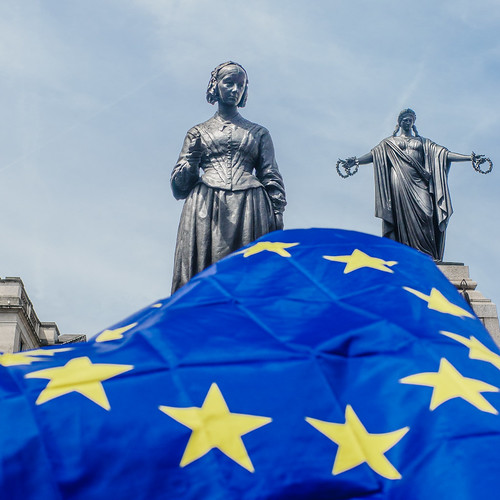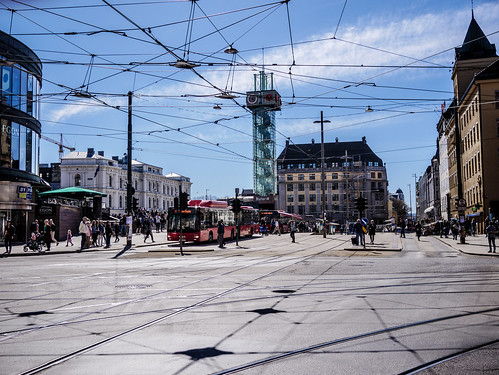Alexandria Ocasio-Cortez, whose candidacy I’ve championed and worked for since May, had a bad moment late last week.
Appearing on the reboot of Firing Line, Ocasio-Cortez was asked by conservative host Margaret Hoover to explain her stance on Israel. The question left Ocasio-Cortez tongue-tied and equivocating. Here was the exchange:
MH: You, in the campaign, made one tweet, or made one statement, that referred to a killing by Israeli soldiers of civilians in Gaza and called it a “massacre,” which became a little bit controversial. But I haven’t seen anywhere — what is your position on Israel?
AOC: Well, I believe absolutely in Israel’s right to exist. I am a proponent of a two-state solution. And for me, it’s not — this is not a referendum, I think, on the state of Israel. For me, the lens through which I saw this incident, as an activist, as an organizer, if sixty people were killed in Ferguson, Missouri, if sixty people were killed in the South Bronx — unarmed — if sixty people were killed in Puerto Rico — I just looked at that incident more through . . . through just, as an incident, and to me, it would just be completely unacceptable if that happened on our shores. But I am —
MH: Of course the dynamic there in terms of geopolitics —
AOC: Of course.
MH: And the war in the Middle East is very different than people expressing their First Amendment right to protest.
AOC: Well, yes. But I also think that what people are starting to see at least in the occupation of Palestine is just an increasing crisis of humanitarian condition, and that to me is just where I tend to come from on this issue.
MH: You use the term “the occupation of Palestine”? What did you mean by that?
AOC: Oh, um [pause] I think it, what I meant is the settlements that are increasing in some of these areas and places where Palestinians are experiencing difficulty in access to their housing and homes.
MH: Do you think you can expand on that?
AOC: Yeah, I mean, I think I’d also just [waves hands and laughs] I am not the expert on geopolitics on this issue. You know, for me, I’m a firm believer in finding a two-state solution on this issue, and I’m happy to sit down with leaders on both of these. For me, I just look at things through a human rights lens, and I may not use the right words [laughs] I know this is a very intense issue.
MH: That’s very honest, that’s very honest. It’s very honest, and when, you, you know, get to Washington and you’re an elected member of Congress you’ll have the opportunity to talk to people on all sides and visit Israel and visit the West Bank and —
AOC: Absolutely, absolutely. And I think that that’s one of those things that’s important too is that, you know, especially with the district that I represent — I come from the South Bronx, I come from a Puerto Rican background, and Middle Eastern politics was not exactly at my kitchen table every night. But, I also recognize that this is an intensely important issue for people in my district, for Americans across the country, and I think what’s at least important to communicate is that I’m willing to listen and that I’m willing to learn and evolve on this issue like I think many Americans are.
Let’s be clear. This is not good. Prompted about her use of the word “massacre,” Ocasio-Cortez doesn’t stay with the experience of the Palestinians. Instead, she goes immediately to an affirmation of Israel’s right to exist, as if Israelis were the first order of concern, and that affirming that right is the necessary ticket to saying anything about Palestine. Asked about her use of the phrase “occupation of Palestine,” Ocasio-Cortez wanders into a thicket of abstractions about access to housing and “settlements that are increasing in some of these areas.” She apologizes for not being an expert on a major geopolitical issue. She proffers liberal platitudes about a two-state solution that everyone knows are just words and clichés designed to defer any genuine reckoning with the situation at hand, with no concrete discussion of anything the US could or should do to intervene.
Even within the constraints of American electoral politics, there are better ways — better left ways — to deal with this entirely foreseeable question. Not only was this a bad moment for the Left but it was also a lost opportunity: to speak to people who are not leftists about a major issue in a way that sounds credible, moral, and politically wise.
As soon as I saw this exchange, I posted about it on Facebook. [click to continue…]






